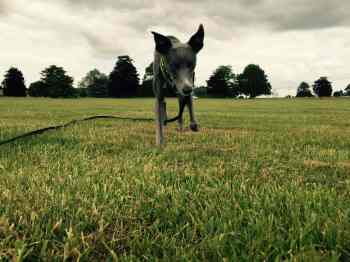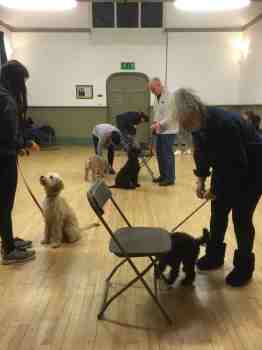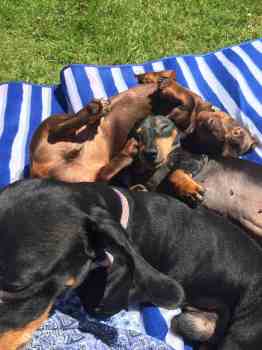The Confident Dog
Posted on

When families decide that they want to bring home a puppy, they dream of a happy, confident dog who is able to accompany them wherever they go in their lives. Their new puppy is bright, extrovert and eager to get into everything with them – and they assume that this period will last forever. Often however, around 18 weeks of age they start to notice changes in their puppy’s behaviour and they are confused as to why their outgoing and friendly puppy is increasingly fearful and maybe showing signs of aggression. What has caused this change?
The world is a dangerous place, and all animals have survival instincts that motivate them to stay safe and avoid danger, often even before it is clear what the danger actually is. Mice will attempt to hide at the screech of a bird of prey and wild deer flee from signs of approaching humans. These animals do not usually learn to flee from predators through experience – as experience would generally mean that they were not alive to tell the tale! So what causes them to react so rapidly?
The underlying mechanism behind this behaviour is fear of novelty. Things that are unusual in the environment could be harmful and therefore avoiding them increases the chance of the animal staying safe to live another day. In order to learn what is unusual however, an animal must first learn what is usual – so Nature has given animals a dedicated time to establish this. During this sensitive period they learn what other animals are safe to socialise with and how, as well as learning what things pose no threat and do not need avoidance.

For many wild animals this period is staggeringly short, in wolf puppies this is a mere 19 days! Of course many would reason that this would also be the same for our dogs, as they are wolves too right? Wrong! In domesticating our companion dogs and selecting for the more confident, friendly animals, we have extended this period to anywhere between 49-84 days – depending on the breed. It may not seem like much, but this is what enables our dogs to cope with a world that is vastly more variable and complex than a large forest or tundra.
It is for this reason that our puppies are so bright eyed and eager to confidently explore the world that surrounds them. Doing this means that when their sensitive period ends, they stay confident, happy and outgoing within that environment and can cope with the fast paced and constantly changing human world.
So what changes do these owners see when this period ends? At this point puppies begin to show apprehension when encountering new things. This is often a gradual process and many dogs are able to overcome initial apprehension when young – but this ability declines with age and, as adult hormones increase, puppies soon start to display ‘hazard avoidance behaviours’, strategies that help them resolve fear:
- Freeze – This enables information gathering about a potential threat, identifying if a reaction is needed and what it should be.
- Flirt – Dogs are a sociable species and this strategy is designed to facilitate social interactions and appease and deflect when another dog or human appears threatening. Flirt behaviours often include lip licking, low tail wagging and rolling over to expose the belly.
 Flight – The safest approach if something appears highly threatening and getting closer.
Flight – The safest approach if something appears highly threatening and getting closer. - Fight – This is a costly strategy that can result in serious injury (or death) and therefore is only used if all else fails. However if this strategy is successful (and the threat goes away) this may be the first response next time, explaining why once this behaviour starts, it can be difficult to prevent from happening again.
So how can you prevent your puppy from feeling fearful and needing to resort to using these behaviours when puppyhood ends? The answer is simple, don’t take your puppy’s confidence for granted! Remember that it is your job to use this time wisely and to get your puppy out and about in the big wide world so that he can grow into a confident adult.
ForPaws puppy classes and private training for tuppies is run by Corrine Lisle, DipCABT (QCF Lev 4), MAPDT 01181, a qualified dog trainer and accredited behaviourist. For help with offering your puppy the very best start in life, enabling him or her to grow into the confident dog you wanted, book onto our puppy classes or private trainingnow.

Add a comment: